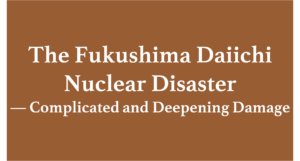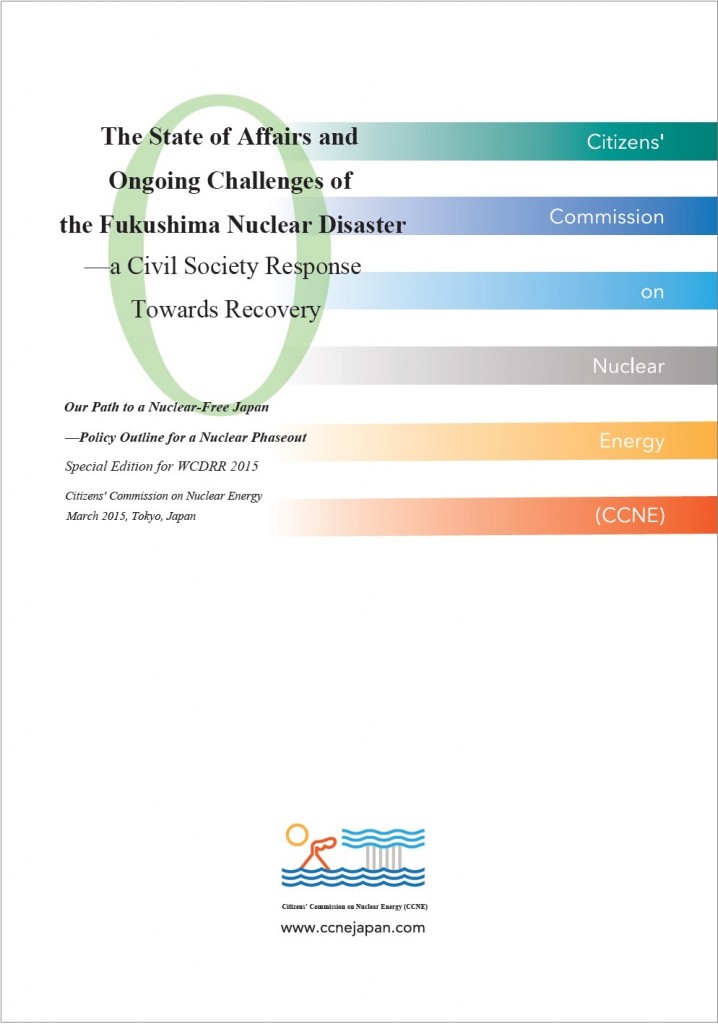5. Regulatory Review of Restarts of Nuclear Power Plants and Lawsuit to Halt Operation of Nuclear Power Plants
![]() Operating status of nuclear power plants
Operating status of nuclear power plants
| At the time of the Fukushima nuclear power plant accident in 2011 | NPPs in operation in Japan | 54 reactors |
| As of 2018 | NPPs meeting the new regulatory standards | 15 reactors (9 of which are already in operation) |
| NPPs under regulatory review | 12 reactors (Including newly constructed Shimane No.3 and Oma NPP, now under construction) |
|
| NPPs for which a regulatory review has not been applied | 9 reactors (Including TEPCO’s Higashidori, now under construction) |
- In 2018–2019, Oi Units 3 and 4 (Fukui Prefecture) and Genkai Units 3 and 4 (Saga Prefecture), which met the new regulatory standards in 2017, were restarted in 2018.
- The restart of the Ikata Unit 3 (Ehime Prefecture) reactor had been suspended due to a temporary injunction handed down by the Hiroshima High Court (December 2017).
- However, the temporary injunction was revoked by an appeal court in September 2018 and the reactor restarted in October.
- In 2019, no nuclear power plants met the new regulatory standards or were restarted.
![]() Problems with the new regulatory standards
Problems with the new regulatory standards
The fact that the new regulatory standards that came into force in the wake of the Fukushima nuclear accident were totally inadequate and could not guarantee the safety of nuclear power plants was analyzed in detail in the report of the Citizens’ Commission on Nuclear Energy ‘How Should Nuclear Safety Standards Be Established?‘. However, it is true that the new standards act as a partial brake on the restart of nuclear power plants due to the high cost of implementing the measures necessary to meet the new standards and the long time required for screening. In fact, 21 nuclear reactors and the Monju fast-breeder reactor have been decommissioned since the accident.
![]() Legal Actions to stop nuclear power plants
Legal Actions to stop nuclear power plants
In the wake of the accident at TEPCO’s Fukushima Daiichi nuclear power plant, lawsuits seeking to halt or decommission nuclear reactors have been filed across the country.
Judgments and decisions banning the operation of nuclear power plants
| May 2014 | Fukui District Court: Oi NPP |
| April 2015 | Fukui District Court: Temporary injunction against Takahama NPP (Fukui Prefecture) |
| March 2016 | Otsu District Court: Temporary injunction against Takahama NPP |
| December 2017 | Hiroshima High Court: Appeal against Ikata NPP‘s temporary injunction. |
Since 2018, however, courts have rejected residents’ claims.
Judgments/Decisions not imposing suspension of operation on nuclear power plants
&bnsp;
| March 2018 | Hakodate District Court: Oma NPP (Aomori Prefecture) |
| Saga District Court: Temporary injunction against Genkai NPP |
|
| Osaka District Court: Temporary injunction against Takahama NPP |
|
| July 2018 | Nagoya High Court, Kanazawa Branch: Appeals concerning Oi NPP |
| September 2018 | Hiroshima High Court: Objection concerning Ikata NPP |
| Oita District Court: Temporary injunction against Ikata NPP |
|
| October 2018 | Hiroshima District Court: Temporary injunction against Ikata NPP |
| November 2018 | Takamatsu High Court: Immediate appeal concerning Ikata NPP |
| March 2019 | Yamaguchi District Court, Iwakuni Branch: Temporary injunction against Ikata NPP |
| Osaka District Court: Temporary injunction against Oi NPP |
|
| June 2019 | Fukuoka District Court: Administrative Lawsuit concerning Sendai NPP (Kagoshima Prefecture) |
| July 2019 | Saga District Court: Temporary injunction against Genkai NPP |
Lawsuits calling for the suspension and decommissioning of all nuclear reactors except Higashidori are currently continuing. (In January 2020, the Hiroshima High Court handed down a temporary injunction against Ikata Unit 3.) The verdict in the criminal trial against the top management of TEPCO was handed down in September 2019. The Tokyo District Court did not recognize the criminal responsibility of the three former executives, but the plaintiffs have appealed and the case is now being tried at the Tokyo High Court.


